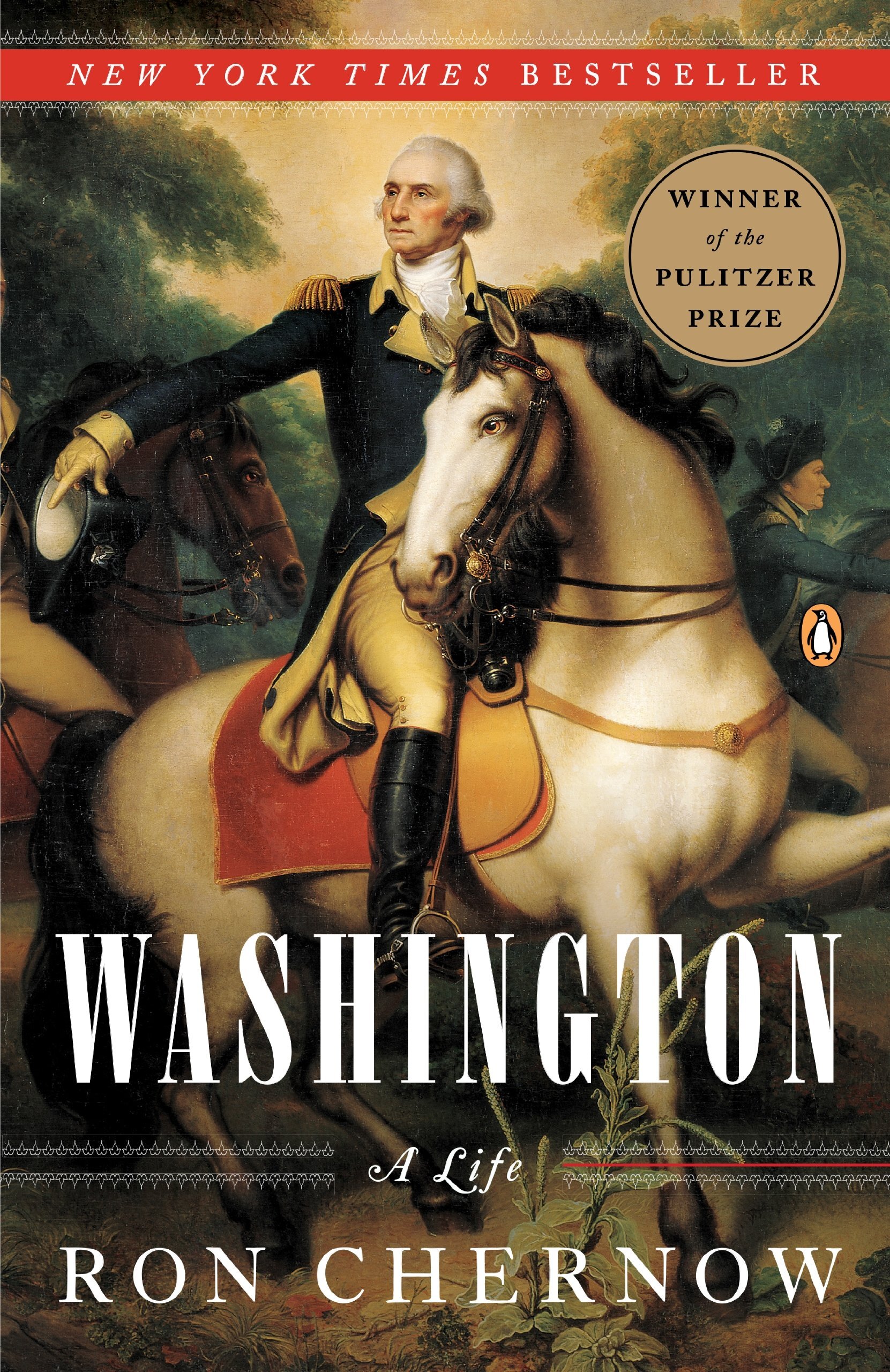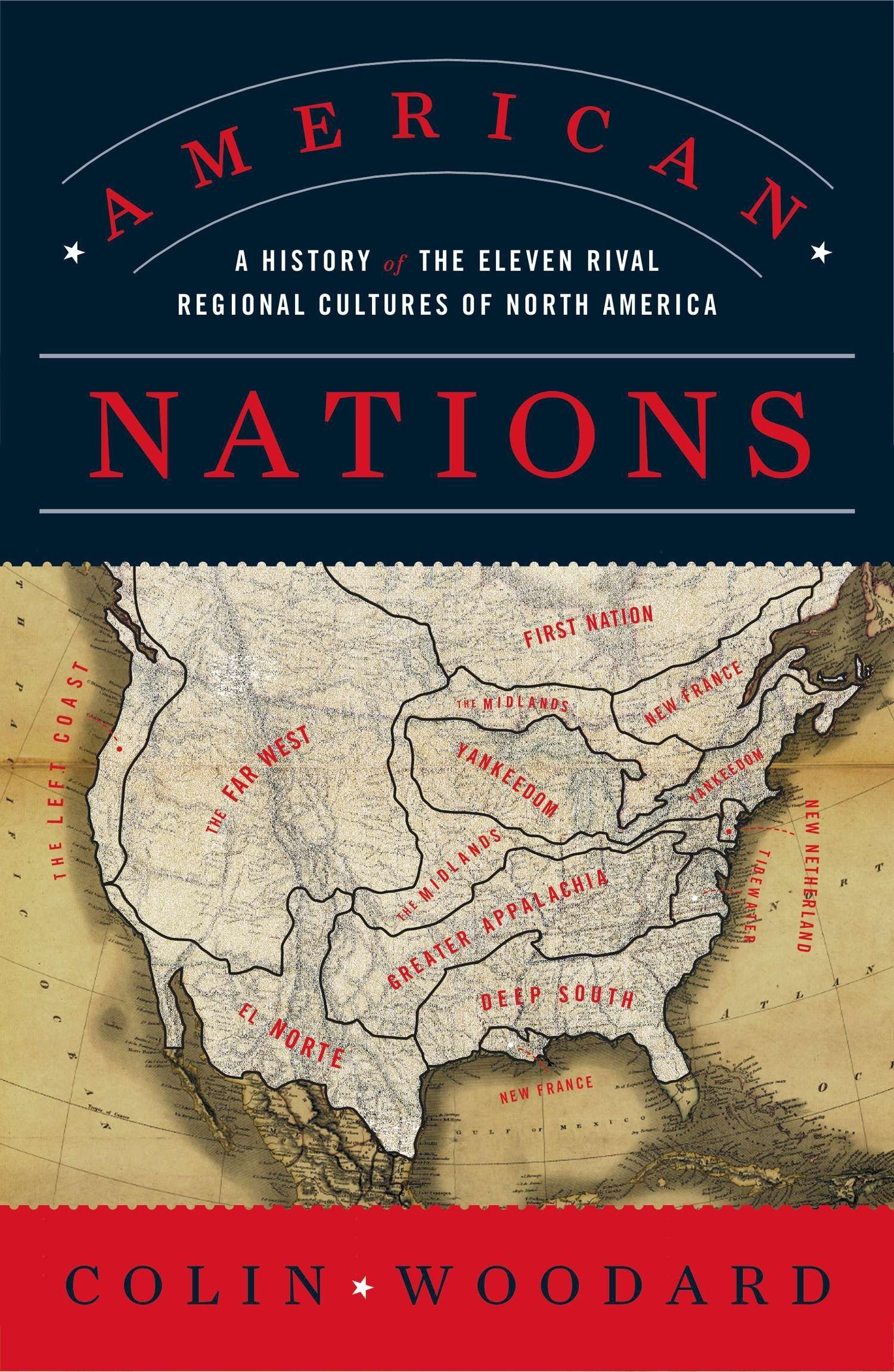Washington: A Life – by Ron Chernow
Recommendation: 9/10. Date read: 4/27/21.
The definitive biography of George Washington. Chernow tracks the entirety of Washington’s celebrated life from childhood to his early experiences in the French and Indian War, and eventually through his role as commander of the Continental Army and years serving as American’s first president. The depth of Washington’s life is awe-inspiring. At every turn, he demonstrated an ability to make difficult decisions by relying on his strong moral compass during turbulent times when outcomes were far from certain—especially through the American Revolution and the early years of a newly formed government. He was a deeply private figure, cloaking himself in mystery despite the fame that followed him in later life. Although reluctant to accept political roles he found his way into, he was purposeful in his every move—a true statesman who put the wellbeing of the nation over his desire for a quiet life.
See my notes below or Amazon for details and reviews.
My Notes:
Cloak yourself in mystery:
“An important element in Washington’s leadership both as a military commander and as President was his dignified, even forbidding, demeanor, his aloofness, the distance he consciously set and maintained between himself and nearly all the rest of the world.” W.W. Abbot
Washington often focused on learning the maximum about other people’s thoughts while revealing the minimum about his own.
“Let all men know thee, but no man know thee thoroughly.” Benjamin Franklin
Washington possessed the gift of silence and had great self-command. Exerted more power by withholding opinions than by expressing them. His public role led him to create a barrier that prevented intimacy with all but a few. This secrecy and evasion allowed him to avoid compromising his position and alerting the enemy to weaknesses during the American Revolution when he was (almost always) deficient of men, munitions, and supplies.
Character:
“With command of his tongue and temper, he had the supreme temperament for leadership compared to his scheming rivals. It was perhaps less his military skills than his character that eclipsed all competitors. Washington was dignified, circumspect, and upright, whereas his enemies seemed petty and skulking.” RC
At the end of the American Revolution, Washington resigned his position and return to privacy at Mount Vernon. “The figure hurrying back to his long-forgotten past had just accomplished something more extraordinary than any military feat during the war. At war’s end, he stood alone at the pinnacle of power, but he never became drunk with that influence, as had so many generals before him, and treated his commission as a public trust to be returned as soon as possible to the people’s representatives. Throughout history victorious generals had sought to parlay their fame into political power, whereas Washington had only a craving for privacy. Instead of glorying in his might, he feared its terrible weight and potential misuse.” RC
“He brought maturity, sobriety, judgment, and integrity to a political experiment that could easily have grown giddy with its own vaulted success, and he avoided the backbiting, envy, and intrigue that detracted from the achievements of other founders.” RC
Purposeful:
Young Washington was adventurous (swimming, riding, hunting, fencing) and combined this with an ability to master social etiquette, enabling him to climb the ladder of high society. “He was an unusually sober and purposeful young man.” RC
Moral compass:
“George Washington possessed the gift of inspired simplicity, a clarity and purity of vision that never failed him. Whatever petty partisan disputes swirled around him, he kept his eyes fixed on the transcendent goals that motivated his quest. As sensitive to criticism as any other man, he never allowed personal attacks or threats to distract him, following an inner compass that charted the way ahead.” RC
Decision making:
“Always fearful of failure, Washington wanted to push ahead only if he was armed with detailed knowledge and enjoyed a high likelihood of success. This cautious, disciplined political style would persist long after the original insecurity that had prompted it had disappeared.”
The French and Indian War:
Taught Washington invaluable lessons in frontier warfare which the Indians demonstrated so well—mobile style of warfare that relied on ambushing, sniping from trees, and vanishing into the forest. His defeat on the frontier came be seen as a doomed but heroic defense rather than a military blunder.
“Some men will gain as much experience in the course of three or four years as some will in ten or a dozen.” Washington
“It was this process of subtle, silent, unrelenting self-criticism that enabled him to rise above his earthly defeats.” RC
Must undergo a hard winter training to develop true confidence:
“As a member of the British forces, he had begun to articulate a comprehensive critique of British fighting methods in North America. For a young man, he acquired an amazing amount of experience and these precocious achievements yielded a lasting reservoir of self-confidence. He had proved his toughness and courage in the face of massacres and defeats. He had learned to train and drill regiments and developed a rudimentary sense of military strategy. He had shown a real capacity to lead and take responsibility for fulfilling the most arduous missions. Perhaps, most important, his experience in the French and Indian War made him a believer in strong central government and a vigorous executive. Forced to deal with destructive competition, among the colonies, dilatory legislative committees, and squabbling, shortsighted politicians, he had passed an excellent dress rehearsal for the prolonged ordeal of the American Revolution.” RC
Skin in the game:
Part of the reason that Washington commanded such a deep respect from everyone throughout his life and career is because he was always willing to put himself in the heat of battle. He never shied away from the front lines.
“Washington was no remote leader but an active, rousing presence.” RC
“To obtain the applause of deserving men is a heartfelt satisfaction; to merit them is my highest wish.” Joseph Addison
American Revolution:
Great Britain was bad for local business, which created the unique situation and historical anomaly of a revolution inaugurated by affluent, conservative leaders.
Early on Washington learned to shift his strategy and wage a defensive war in order to keep the cause alive. See retreat from Long Island on page 250. See calamities at Forts Washington and Lee on page 264 (futility of trying to defend positions along seaboard and moved instead into countryside where mobility favored Continental Army).
Crossing the Delaware, 1776: Washington was more concerned about patriotic support tapering off and short enlistments that would allow most of his army to depart at the end of the year than he was about the strength of the British Army. Washington knew without a momentous victory and a daring strike, it would be difficult to inject energy into the cause. Washington and the army crossed the river in treacherous conditions and descended on Trenton. The battle was over in an hour. After this victory and the next at Princeton, the psychology of the war was dramatically reversed. Page 269.
“His military triumphs had been neither frequent nor epic in scale. He had lost more battles than he had won…But he was a different kind of general fighting a different kind of war…His fortitude in keeping the impoverished Continental Army intact was a major historic accomplishment.” RC
“In defining the culture of the Continental Army, he had helped to mold the very character of the country, preventing the Revolution from taking a bloodthirsty, or despotic turn.” RC
Missionaries > Mercenaries:
“The unconquerable resolution of our citizens, the conscious rectitude of our cause, and a confident trust that we should not be forsaken by heaven.” Washington
Moderation:
When Washington was appointed General and Commander in Chief, he acted as the glue that helped bind the colonies together. Hailing from Virginia, he knew how to bridge the North and South. “Many southerners feared that New Englanders were a rash, obstinate people, prone to extremism, and worried that an army led by a New England general might someday turn despotic and conquer the South. The appointment of George Washington would soothe such fears and form a perfect political compromise between North and South.” RC
“He also provided a conservative counterweight to some of the more unruly impulses of the American Revolution, ensuring incremental progress and averting the bloody excesses associated with the French Revolution.” RC
Second-order thinking:
“His overriding goal was to contrast his own humane behavior with the predatory ways of the enemy.” RC
Washington preached fair treatment of civilians, respect for private property, and doled out harsh punishment for anyone who violated this. “The spirit and willingness of the people must in a great measure take the place of coercion.” Washington
Presidency:
Not every decision you face will be a ‘hell yes.’ Washington was extremely reluctant to leave a sense of privacy and peacefulness at Mount Vernon to take on the challenges facing the country. He had serious doubts. The way he rationalized it was that he felt he could serve a couple of years then bow out before he even finished his first term. If he knew he would have served 8 years, he likely wouldn’t have agreed to it.
“The presidency is the powerful office it is in large part because of Washington’s initial behavior. Washington had forged the executive branch of the federal government, appointed outstanding department heads, and set a benchmark for fairness, efficiency, and integrity that future administrations would aspire to match.” RC


